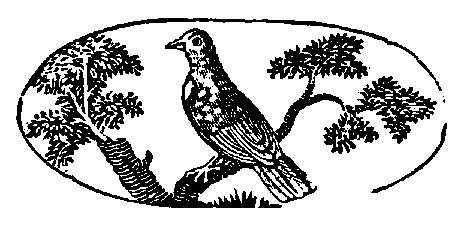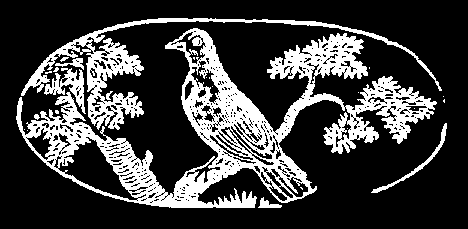
On Literature
Umberto Eco
Martin McLaughlin,
Translator
(Harcourt)

Remember that poem by Wallace Stevens, "Thirteen Ways of Looking at a Blackbird." It was a fine meld of ImagistThe blackbird whirled in the autumn winds.
It was a small part of the pantomime.
and haiku
The river is moving.
The blackbird must be flying.and King James
O thin men of Haddam,
Why do you imagine golden birds?
Do you not see how the blackbird
Walks around the feet
Of the women about you?In its variety and charm, Eco might be presenting us with "Thirteen Ways of Looking at Literature," eighteen essays (many from professional presentations to magazines or at symposia) on the subject of "literature" --- literature of Columbia, Ireland, Italy, France, England, and even the ancients and medievalists.
Wallace Stevens was able to fool his readers into believing that he was addressing one subject: blackbirds, neatly woven in each of the thirteen verses. But the poem itself tells us different. He is playing with numbers --- thirteen, twenty, one:
Among twenty snowy mountains,
The only moving thing
Was the eye of the blackbird.
He gives us psychology (and "reality"):
I was of three minds,
Like a tree
In which there are three blackbirds.
Then there's divinity (and love):
A man and a woman
Are one.
A man and a woman and a blackbird
Are one.And finally, we are given time (and "æsthetics"):
I do not know which to prefer,
The beauty of inflections
Or the beauty of innuendoes,
The blackbird whistling
Or just after.§ § § In the same way, Eco may be pretending to present us with analysis of Joyce, Borges, Camporesi, Jules Verne, Oscar Wilde, Wagner (and Marx!) --- but he also seems to be telling us how to read a novel or, perhaps, how to write one.
He employs modern pop drollery to respond to a dumb question from interviewers:
Q. How did you write your first novel?
A. From left to right.Which puts us in the mind of the question given to John Lennon, "How did you find the United States?" "Oh, we just turned left at Greenland."
Speaking of the Beatles, Eco spends some time on the irony of "high cultural models" being changed into something that "turns out to be pleasing and imaginative for the popular user."
The Beatles, he tells us, "used cultured phrasing and echoes of other times, which are noticeable to the educated ear." He cites the master singer Cathy Berberian who recorded a disk of their songs "arranged in Purcell's style."

Eco can be atrociously obscurantist. For instance, this on Aristotle: "The genre that the Poetics discusses is the representation of an action (pragma) through a plot (mythos), and epic diegesis and dramatic mimesis are only species of this genre..." but these moments, thank god, are rare.He is at his best not when he is expounding on his own writings --- sometimes he just won't let lie --- but when he is being contrarian, anarchistic, paradoxical. He can, for instance, cite the narrative, novelistic elements in Spinoza's Ethics and then on the Protocols of the Elders of Zion --- the latter of which was stolen, as he points out, from a cynical speech of one of the bigoted characters in The Wandering Jew by Eugène Sue.
Eco will then will do The Paradoxical Dance, speaking, for example, of "a typical Borges invention" --- namely, "the invention of invention." He compares the Poetics of Aristotle to the soap-opera Dallas or, even more wonderfully, a "John Ford-style Western."
And in one of the funniest essays, he cites the novelistic style of Marx's Manifesto.
It is an astonishing text that skillfully alternates apocalyptic and ironic tones, powerful slogans and clear explanations, and ... even today it should be read like a sacred text in advertising agencies.
§ § § Umberto Eco loves literary fireworks, and those of us who eat, drink, smoke, and sleep literature find it hard not to love him. Unlike Borges, Eliot and Joyce, he seems to be keen --- perhaps too keen --- to read what the critics and scholars have had to say about his four novels, The Name of the Rose, Foucault's Pendulum, The Island of the Day Before, and Baudolino.
Meanwhile, he misses what we might call an artist's "purposeful obfuscation." He cites the "pages and pages of notes" that Eliot stuck at the end of The Waste Land. He calls them references to "history and cultural anthropology." With this, he doesn't acknowledge the fact that Eliot was so irritated at literary critics pawing over the sources of his poems that he provided "notes" --- some facetious, some consciously obscure --- just to confuse them ... and to mock the literary scholarship racket.
Eco also takes the writings of Stuart Gilbert for real. In truth, Gilbert was a pushy PhD type who wouldn't leave James Joyce alone, so in the evenings, in Paris, the author would take him out, letting him buy the drinks --- Joyce was quite a merry lush --- all the while filling him with a studied nonsense about the Homeric structure of Ulysses. Gilbert's scholarship gave us thirteen ways of looking at the novel, but it was Joyce's inside joke on a tedious, plodding sycophant --- and thus should not be accorded any verity.
This should not divert us from the fact that Eco's On Literature is a fine literary Fourth of July, with enough twists and turns and sparklers to delight those of us who love words, especially when he comes up with his contrarian thoughts, like this one on Oscar Wilde's final tragedy: "To be true to his own principles he should have been sent to prison not for having loved Lord Douglas but for having sent him letters with lines like this:"
It is a marvel that those red rose-leaf lips of yours should have been made no less for music of song than for madness of kisses...

--- Lolita Lark